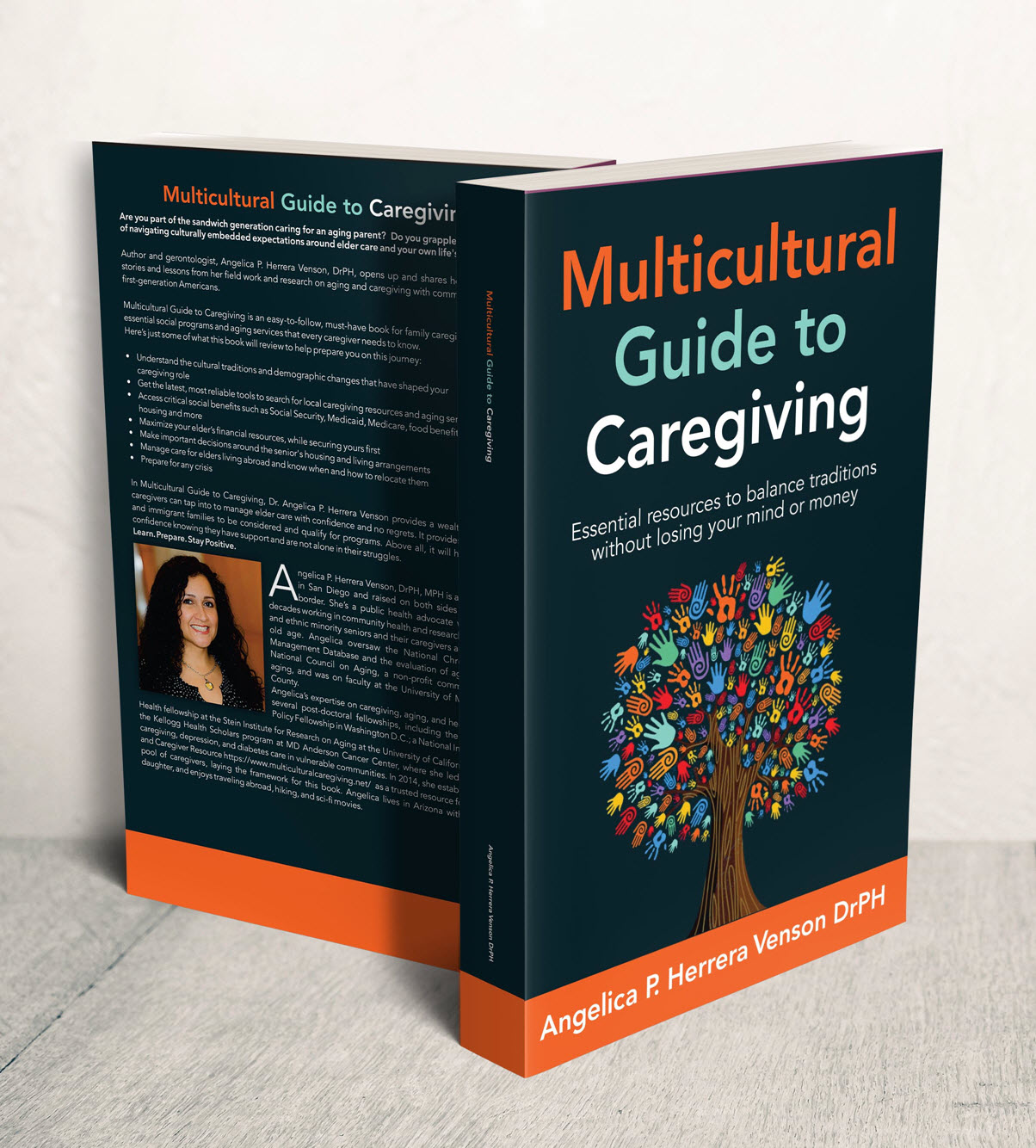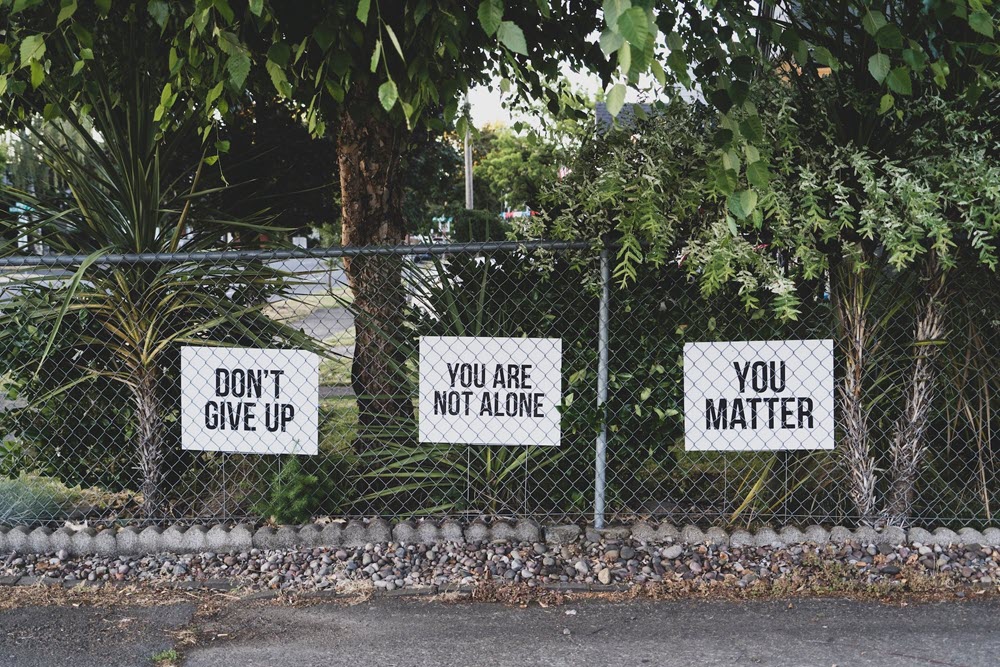
These days, few people can deny the importance of mental health. Yet, actually finding the mental health support you need can be surprisingly tricky.
Getting support is even more challenging when you’re part of a minority group, as people on the outside may not understand the specific challenges you face or how to help you.
Simply being a caregiver places you in one type of minority group. After all, many people have no idea what the role feels like and it contains some surprising element.
Caring for someone from a minority culture adds a new angle to things. That’s why today, we’re looking at one specific aspect of this topic – multicultural caregiving and mental health. This includes considering how these two areas intersect and ways that caregivers can be supported.
What Is Multicultural Caregiving?
Multicultural caregiving can be understood in two ways.
The first is caring for people from multiple cultures. Like, if you’re a professional caregiver and one of your clients is African American and another is Hispanic.
The term can also refer to family caregivers who don’t come from the dominant culture, such as Korean families within the United States.
Multicultural caregiving is an incredibly important topic, as different cultural groups have their own values and traditions that can influence care and access to resources.

The Multicultural Guide to Caregiving
Multicultural Guide to Caregiving is an essential resource for balancing cultural expectations around elder care, without losing your mind or money in the process.
Feeling Overwhelmed?
Check out our Caregiving Consulting service for personalized support and guidance.
The Impacts of Multicultural Caregiving
Many caregiving challenges aren’t culture-specific. Areas like incontinence, sibling drama, and stubborn parents occur regardless of your cultural background.
Yet, there are areas that do vary between cultures and some of these can directly impact caregiving, including the following:
Language Barriers
Our healthcare system focuses on English. True, some materials have been translated into other languages and there are often bilingual staff members, but the system is still incredibly confusing for seniors who don’t speak English.
Even if information is translated for them, there’s a good chance that some details get lost along the way or the senior simply doesn’t understand. Similarly, healthcare staff may not understand all the information the senior gives them, leading to confusion.
The resulting misunderstandings could lead to health issues too, like an allergy being missed or the wrong condition being diagnosed. The negative outcomes could be severe and even potentially fatal at times.
Communication Differences
Some communication challenges remain even in English-speaking families. For example, a person’s cultural background might mean they don’t talk about certain topics, like incontinence, pain, or perhaps mental health.
Some seniors may even hide signs of a health problem from children and doctors because of their cultural background. As such, caregivers and health providers must learn the culture and find ways to encourage communication.
Differences in Care
A person’s race or culture may also impact the care they receive, sometimes due to bias and stereotyping.
For example, one study found that depression was less likely to be treated well for black men and for less educated men. Similarly, women sometimes struggle to get their health concerns taken seriously.
This is why it is so important to advocate for your loved one, especially in healthcare settings.
Social Support Networks
Assumptions and values around social support also vary between cultures. Some cultures have a focus on extended networks of families and friends, which includes families living together in intergenerational homes.
Such cultures often have more support for the aging parent, as the entire family will rally around.
However, things may be different in the United States. The amount of support here will vary depending on how many family members are present and whether they maintain their traditional values.
This family focus can mean that some seniors and caregivers don’t seek external support. They might consider relying on anyone but family a failure or feel they can’t trust government agencies to provide the needed care and support.
Generational Differences
The impacts of culture often vary between generations.
In particular, many immigrants will strongly hold onto the traditions and values of their culture, while their children and grandchildren are likely to take on more values from their new culture.
In the United States, this may mean that second and third generation family members are ‘Americanized’, while older family members are much more traditional and stick to the values of their culture.
Such differences can create challenges for caregiving, especially if the senior is focused on traditions that the caregiver considers old-fashioned or outdated. For example, a senior might be resistant to the Western hospital system or some medications, even if they are experiencing serious health problems.
Sense of duty can vary between generations as well.
Parents from a collectivist culture may have strong focus on supporting others. This often includes an emphasis on the family over the individual and an expectation that their children will do likewise.
Yet, children who are more Americanized may not share the same values. They may focus more strongly on their own needs instead.
Such differences in perspectives aren’t necessarily right or wrong. But, they can cause considerable family drama and are challenging to navigate.
The Experience of Caregiving
Finally, a person’s cultural background can influence how they experience caregiving.
Someone raised in a family-focused culture may feel that caregiving is a natural responsibility and simply part of one’s family role. While this doesn’t stop caregiving from being challenging, it can make being a caregiver feel more natural and purposeful.
In contrast, someone brought up in an individual-focused culture may not have expected to be a caregiver and the role could feel like a burden.
Mental Health and Caregiving

Caregiving can be an intense role, often including many demands and considerable emotional strain. Watching an aging parent decline brings emotional challenges of its own and can contribute to mental health issues.
Beyond all of this, caregivers often put off their own health needs to support their loved one, which further raises the risk of mental health issues.
Mental Health for Multicultural Caregivers
Multicultural caregivers may struggle in this area more than most, as it is often harder to find appropriate support. For example, the senior might only accept paid support from someone with a familiar cultural background and may be wary of adult day programs because they feel out of place.
Mental Health for Young Caregivers
Caregivers are often in their 60s or 70s – supporting aging partners or parents. However, caregivers can also be considerably younger, including millennial caregivers.
Younger caregivers face some different challenges, particularly as some will still be working or even studying for their degrees. Balancing the challenges of caregiving with those of studying and working is certainly difficult, but not impossible.
Some multicultural student caregivers may even require college assignment help to allow them to balance their caregiving responsibilities along with their educational pursuits. This can be particularly important if English isn’t their first language or if they’re overwhelmed at home.
Student carers must also consider their own personal well-being and find ways to meet their own needs, even in the face of cultural expectations.
Hopefully, colleges and universities will start to support student caregivers more in the future, especially as the aging population grows. Unfortunately, we’re not there yet, leaving young caregivers to forge their own path.
Stigma Associated with Mental Health
Cultural Stigma and Barriers to Seeking Help
Many cultures have a significant stigma surrounding mental health issues, often driven by misconceptions, stereotypes, and cultural norms.
This type of stigma can make individuals feel ashamed or too embarrassed to seek help. Even simple conversations about mental health may be discouraged.
Some caregivers may be faced with the idea that they should simply ‘push through’ or ignore their emotions, rather than talking to someone about them.
Other cultural barriers can impact a caregiver’s ability to seek help, such as language barriers. Language is a key part of being able to communicate with and understand other people. So, in the United States, caregivers who don’t speak English or don’t speak it well may struggle to access good support.
Internalized Stigma Among Multicultural Caregivers
Caregivers may also internalize stigma from their environment. This can lead to self-blame, remorse, guilt, and a sense of inadequacy. They may fear cultural criticism and pressure to be strong and independent.
This level of self-blame and guilt can have a considerable impact on the caregiver’s mental health, leading to increased levels of stress and emotional burden.
Finally, caregivers may also avoid seeking help out of fear of cultural judgment. This highlights the importance of creating a supportive setting that can encourage multicultural caregivers to get the help that they need.
Ways to Promote Mental Health
Education and Awareness
Information is powerful. Caregivers can help themselves and seniors by learning more about mental health. This can include learning about how to support one’s own mental health and how to recognize signs of distress in others.
Learning about mental health helps promote compassion, while teaching caregivers practical approaches make things better.
Be Compassionate
Compassion is another critical area. This includes being compassionate with the person you’re caring for and also with yourself.
Notably, caregiving is difficult. The emotional toll can be almost unbearable at times, yet caregivers are often expected to just soldier on.
Being compassionate to yourself means not beating yourself up for how you feel or for finding things difficult. It also involves recognizing that you may sometimes need to slow down and be kind to yourself.
Seriously.
Just because someone thinks you shouldn’t be stressed, doesn’t mean you shouldn’t be stressed. Other people don’t know what it feels like to be in your shoes.
Being compassionate to the senior helps as well – even if they’re being frustrating. After all, aging can be a difficult and emotionally laden journey. It’s not surprising that some seniors act out when they’re struggling to cope.
Being compassionate doesn’t mean you should tolerate bad behavior, but compassion can help you to be gentler and understand where the senior is coming from.
Set Boundaries and Support Yourself
Self-care is famously one of the most important aspects of caregiving.
The idea is simple on paper –make the time to meet your own needs. That includes things like getting enough exercise, eating well, going to the doctor, relaxing, and having fun.
Yet, many caregivers struggle with self-care. This is often because it’s hard to find the time. You might feel like you can’t justify it either – there are so many pressing things that need doing.
In reality, you waste more time by skipping self-care than doing it. Skipping self-care tends to make you less efficient and more easily overwhelmed. It can impact your decision-making as well. In some cases, not caring for yourself could even put your loved one at risk.
Effective self-care often involves creating boundaries, so you have time for yourself and your needs. This includes thinking about what the senior actually needs your help with, versus the tasks that aren’t essential and those that someone else could do.
Develop Support Systems
Support services are crucial for promoting mental health.
It’s also important that these services address cultural differences, so they can adequately support multicultural caregivers. This includes considering the language, culture, and customs of caregivers. Having an interpreter may be important too, particularly for caregivers who do not speak English well.
Such support systems do exist, but multicultural caregivers may need to look carefully for them.
Try enquiring before you set up a meeting. Learn more about the background of the therapist you’re considering, including whether they have a multicultural background and what they know about your culture.
It may help to find a therapist from the same culture. This way they already share many of the same values and are unlikely to make incorrect assumptions.
You can also look for less formal types of support, such as support networks and friends. Such support can be incredibly valuable, helping you to feel seen and heart.
Conclusion
Being a multicultural caregiver comes with a variety of challenges that other caregivers don’t experience. Yet, many other difficulties remain the same, including the way that caregiving can affect mental health.
Because of the mental health impact, it’s crucial to seek support wherever you can and be kind to yourself. Notably, caregiving is a marathon, not a sprint. Pushing too hard too early is a recipe for disaster.

The Multicultural Guide to Caregiving
Multicultural Guide to Caregiving is an essential resource for balancing cultural expectations around elder care, without losing your mind or money in the process.
Feeling Overwhelmed?
Check out our Caregiving Consulting service for personalized support and guidance.

Leave a Reply